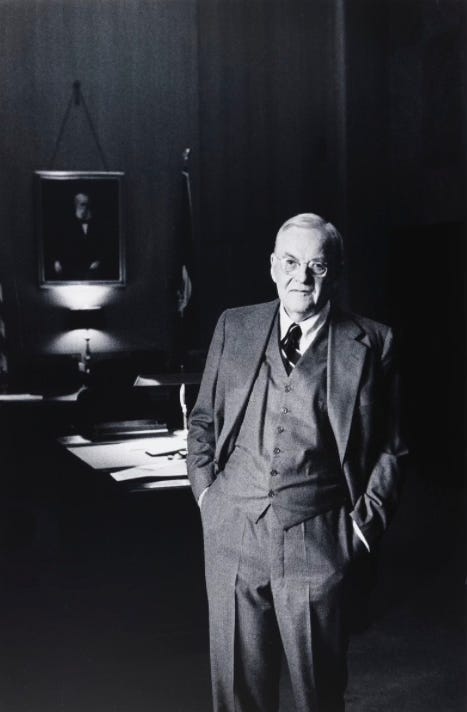Collective Self-Defence
The UN Charter's last hope
(US Secretary of State John Foster Dulles)
The UN Charter came into force 80 years ago today.
It has prevented world war but seen core principles violated, without consequence.
Russia has made a mockery of the Charter’s framework, leaving the Security Council deadlocked, immobilized and paralyzed by its own member.
This was predictable. By giving Stalin a permanent seat in 1945, the UN effectively institutionalized aggression, repression and subversion.
The Soviet Union and Russia have cast 129 veto votes since 1945. Of the 89 cast by the US, 50 were to protect Israel from ritual abuse and the Anti-Semitism that remains rampant at the UN.
China has used only 19 vetoes. The UK and France have not used a veto since 1989.
One permanent member of the Security Council foresaw this deadlock.
On May 12th, 1945 John Foster Dulles, then a legal advisor and consultant to the US delegation at San Francisco, proposed the following draft language: “Should the Security Council not succeed in preventing aggression, and should aggression occur by any state against any member state, such member state possesses the inherent right to take necessary measures for self-defense.”
The League of Nations had only implicitly recognized this right. In article 10 of the League Covenant, members were obligated to preserve territorial integrity and political independence against “external aggression.”
Dulles’ language in 1945 explicitly recognized the pre-existing customary right to self-defence and highlighted its “inherent” nature – meaning it would not be entirely subordinated to the whims of the Security Council.
Latin American states, especially Colombia and Uruguay, shared Dulles’ concerns about potential paralysis. The pre-existing Inter-American System had emphasized collective self-defence. A committee chaired by Australia formalized these provisions, but Dulles’ role was pivotal.
His draft became Article 51 of the current UN Charter which reads: “Nothing in the present Charter shall impair the inherent right of individual or collective self-defence if an armed attack occurs against a Member of the United Nations, until the Security Council has taken measures necessary to maintain international peace and security. Measures taken by Members in the exercise of this right of self-defence shall be immediately reported to the Security Council and shall not in any way affect the authority and responsibility of the Security Council under the present Charter to take at any time such action as it deems necessary in order to maintain or restore international peace and security.”
Since 1945, collective self-defence has been invoked nine times. Two cases involving the Caribbean and three in the Middle East – including operations to protect Iraq from ISIL after 2014 – were relatively minor. Of the four others, the first Gulf war in 1990 and the response to 9/11 had Soviet/Russian support.
Two did not. The Soviet representative was infamously absent when ‘police action’ was authorized in Korea in 1950. In 2014 and again in 2022, Russia blocked any collective response to Russia’s own invasions of Ukraine.
In other words, the authority of the UN today hangs by the few remaining threads of article 51, the Charter’s insurance policy for world order. Without victory in Ukraine, the Charter may not be around to see its centenary.



